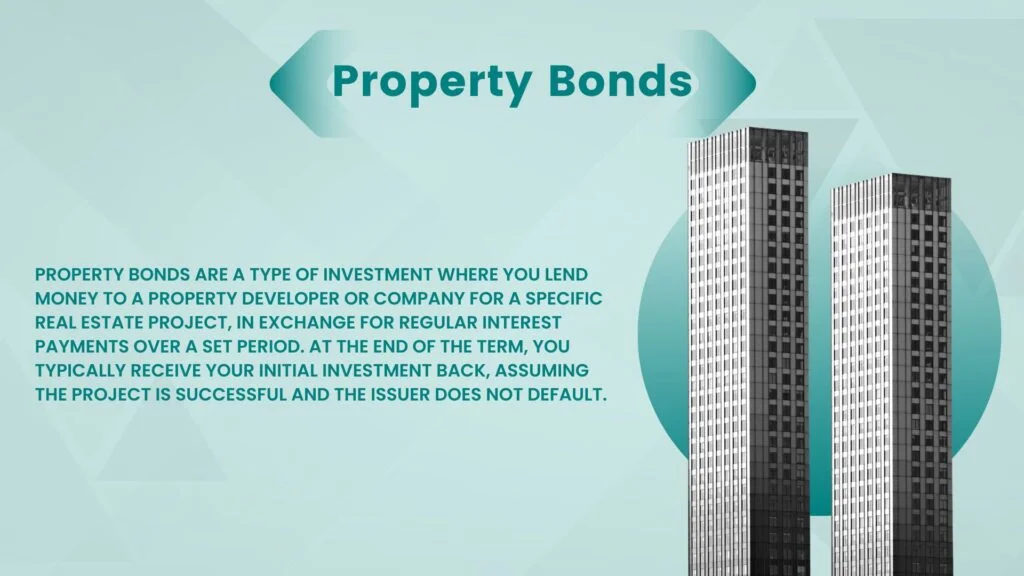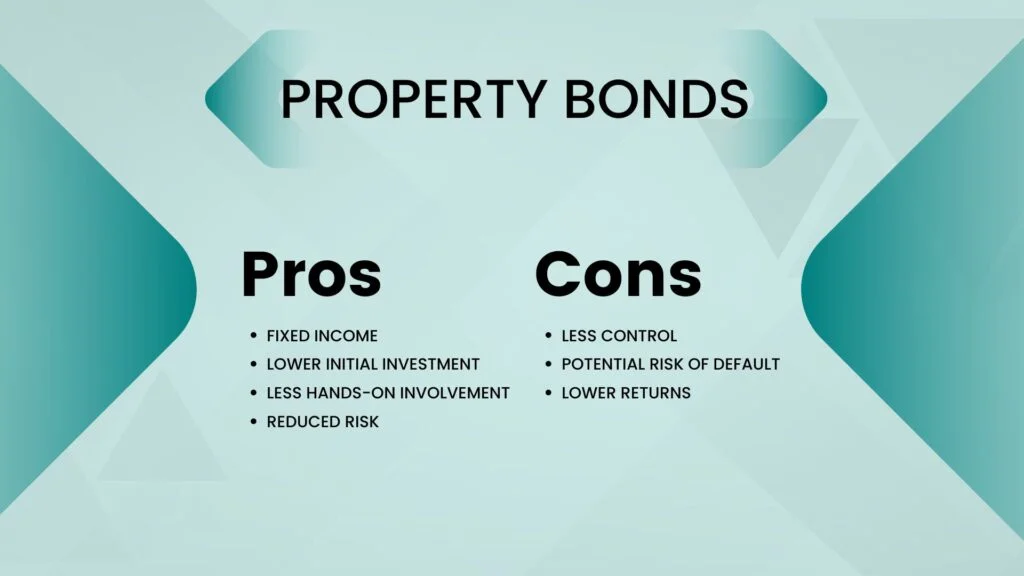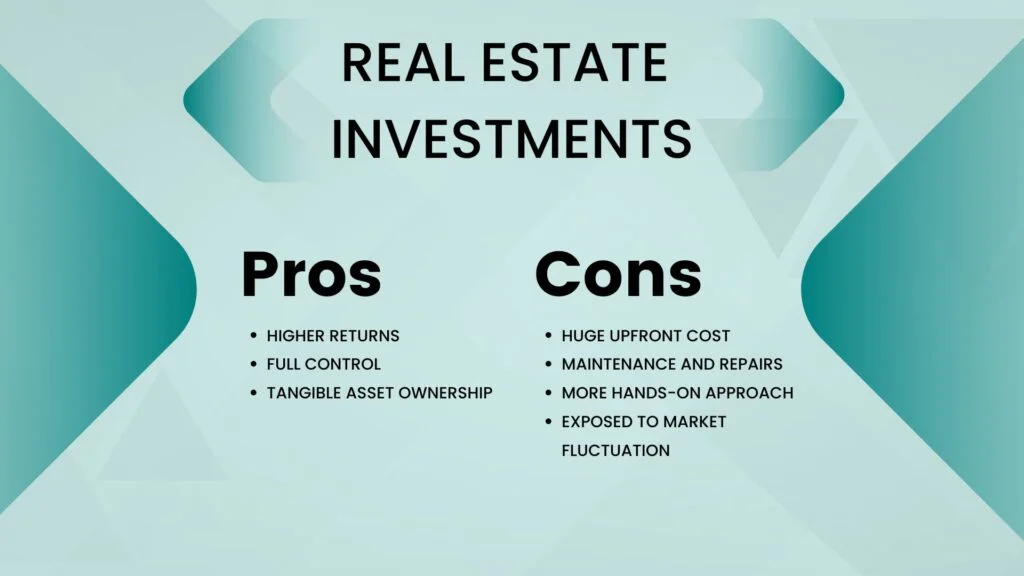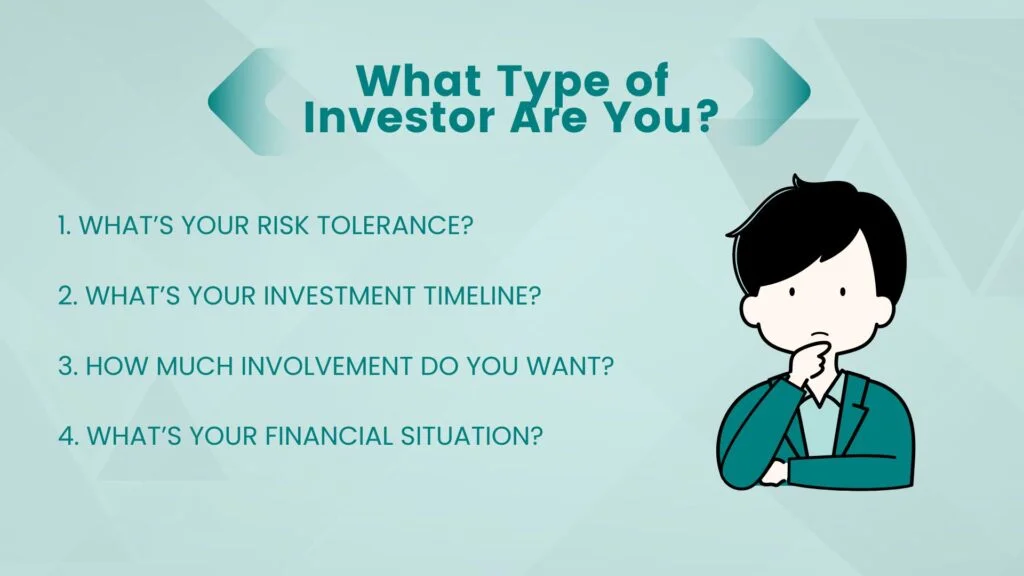Everyone has thought about investing in real estate at least once in their life. It’s simple to understand: you purchase a house, flip it or rent it, and make money; sounds simple, right? But now there’s a new way to invest in real estate properties without being too involved – Property bonds. So, which one should you invest in?
In this post, we will break down both the investment options for you and help you make better decisions about what you should do with your money. We are going to compare both investment avenues from the core – From meaning and how they work to their pros and cons and, most importantly, which one is more suitable for you.
Understanding the Basics
Property Bonds

If you’re looking to make a move in the real estate industry but don’t have the time to manage your houses, this could be the method of investing.
Property bonds are a method for real estate developers to raise funds and investors to invest in real estate projects to earn a steady stream of interest payments.
Here’s how it works: Real estate developers looking to raise funds for their project issue property bonds so people can invest. Investors can read the terms of issued property bonds, which provide details on the minimal amount required, the amount of interest offered, and how long you must invest. Once the investor has invested in the project, the developer will use the capital invested to fund the project while paying interest to the investor according to the agreement.
ALSO READ ABOUT What Are Property Bonds and How Do They Work?
Real Estate Investments

If you have time to manage and oversee your investment more often, you can opt for the traditional method of investing in property.
In real estate investment, you purchase a residential or commercial property with the intent to earn by renting, flipping, or waiting till its market value grows. Unlike property bonds, this is a much more tangible investment with complete control over your investment and a much higher profit margin.
Pros and Cons of Each Option
Property Bonds

Pros:
- Fixed Income: The investor and developer agree on the interest amount that the investor will get in return, so the investor is already aware of how much profit they are going to make.
- Lower Initial Investment: Unlike buying a real estate property, for property bonds, you don’t have to give a huge sum of money for investing. You can start with small or big investments, whatever your budget is.
- Less Hands-On Involvement: As an investor, you are not purchasing the property; all you do is lend the money to the developer, who will pay you back with interest. Therefore, with no tangible investment, you don’t have the responsibility to manage, maintain, renovate, or repair the property.
- Reduced Risk: Property bonds are a less risky investment than buying a property. You aren’t exposed to market fluctuation, i.e., your returns won’t be affected even if the market goes down. Your risk is developer-related.
Cons:
- Less Control: For property bonds, you are just like a venture capitalist who gives the money based on the potential they see in the investment. But you have no control over what the developer is going to use the money for. There is nothing that is going to be according to what you want.
- Potential Risk of Default: All you risk in property bonds lies on the developer and their project. If the developer fails to complete the project for any reason, you are at risk of losing all your money.
- Lower Returns: With a fixed investment, your profit is predetermined and will not be changed. Even if the market is performing very well, your earnings won’t change.
Real Estate Investments

Pros:
- Higher Returns: Real estate properties are a heavy investment because they offer a heavy return. Your investment has the opportunity for substantial growth if your property is in a prime location. You have the potential to increase your rent annually if the market goes up.
- Full Control: Once you purchase the property, it’s all yours. You have complete control over what you do with the property. You can rent it, renovate, and flip it, or you can hold off the property till you see its market value grow.
- Tangible Asset Ownership: A real estate property is a tangible asset that provides more sense of security. You can use this asset when you are in need.
Cons:
- Huge Upfront Cost: A real estate property is a big purchase; even if you are purchasing it using installments, you have to pay a significant downpayment.
- Maintenance and Repairs: The game isn’t over just because you bought the property. You have to maintain your purchase and repair when needed in order to keep its market value afloat.
- More hands-on Approach: If you rent your properties, you have to manage them on a regular basis. This includes rent collection, repairing, renovating, and more.
- Exposed to Market Fluctuation: Unlike property bonds, real estate properties are a tangible asset exposed to wear and tear and, most importantly, to market fluctuation. If the market is down, your asset’s value will go down. This will affect both your rental income and selling costs.
What Type of Investor Are You?
In this section, we will help you understand some key factors that you should consider before making any decision. Let’s go through these questions to determine which investment is more suitable for you.

1. What’s Your Risk Tolerance?
What type of investment are you looking for? How much loss can you handle? These two questions play a big role here.
If you are someone who has a lower risk tolerance, then property bonds are the way to go. They offer very little risk and a guaranteed income. On the other hand, if you have a bigger risk capacity, you can go for a direct real estate property investment for higher returns.
2. What’s Your Investment Timeline?
How long are you looking to invest your money? Property bonds are the right answer for short-term gains; they usually lock your amount for a short period, like a year or two. This type of investment is perfect if you have a goal in mind, like buying a car or bike.
If you are ready to invest for a long time, real estate property is the way to go. This is a perfect option for people looking to build long-term wealth and create a legacy for their kids.
3. How Much Involvement Do You Want?
Do you have enough time to monitor your investment constantly?
If not, you should go for property bonds. In property bonds, you have to invest your time in research and decide how much you want to invest; that’s all the time it takes. You don’t have to manage anything here.
But if you have time, you can go for real estate investment. Real estate investment requires a lot more attention than a property bond. You have to manage rent and handle repairs and renovations.
4. What’s Your Financial Situation?
Most importantly, how much can you invest?
Investing in a property requires a huge amount of money, and even if you are to make a down payment, you have to pay a significant amount. If you can afford a big purchase like a property, you should go for direct investment.
On the other hand, if you have a tighter budget, property bonds offer you a more affordable investment option with less risk.
ALSO READ ABOUT Top 8 Factors Affecting the Real Estate Market Today
FAQs
Is it better to invest in property bonds or real estate?
Property bonds are stable and low-risk returns that require less effort in the process, whereas real estate can generate higher returns but comes with greater risk and management. You should choose according to your risk tolerance and your investment goals.
Final Statement
In the end, the best option for you depends on your individual objectives, your risk tolerance, and personal preferences. If you decide to go with an investment that will yield steady dividends from real estate bonds or lucrative property investments, It is important to choose a wise investment that is compatible with your financial plans.


1 thought on “Property Bonds vs. Real Estate Investments: Which is Right for You?”